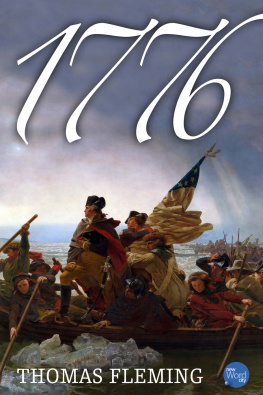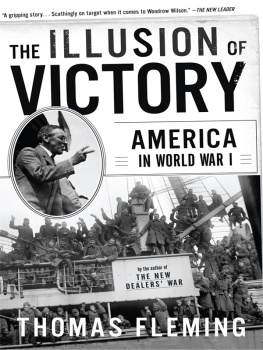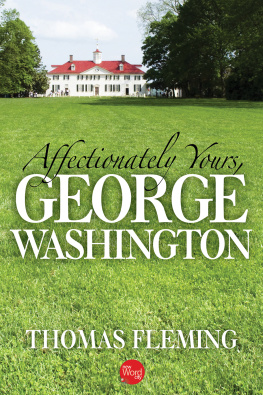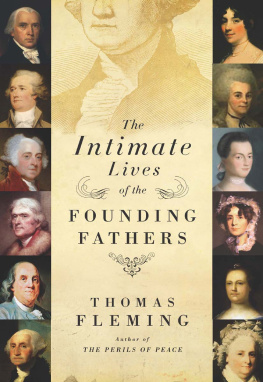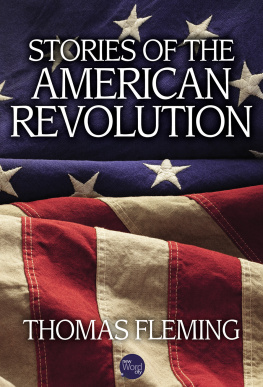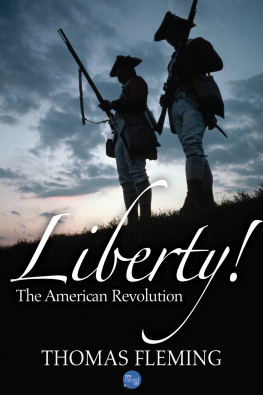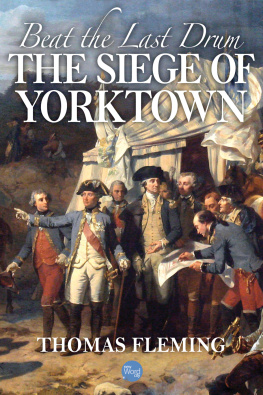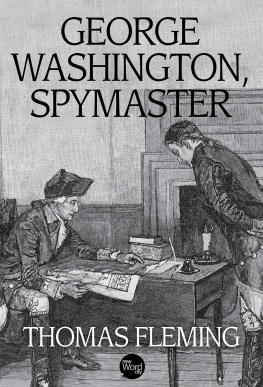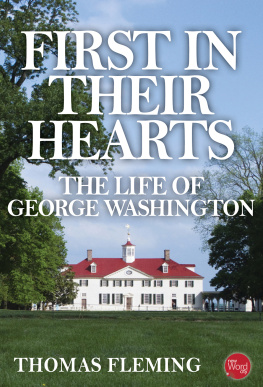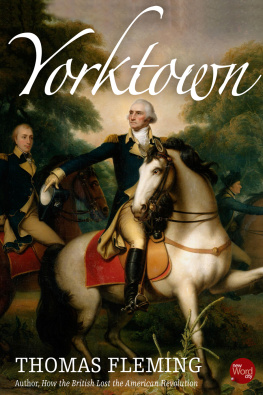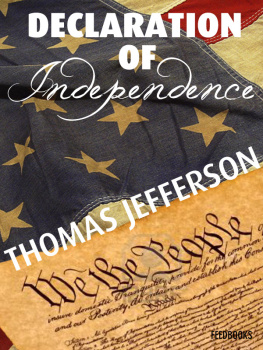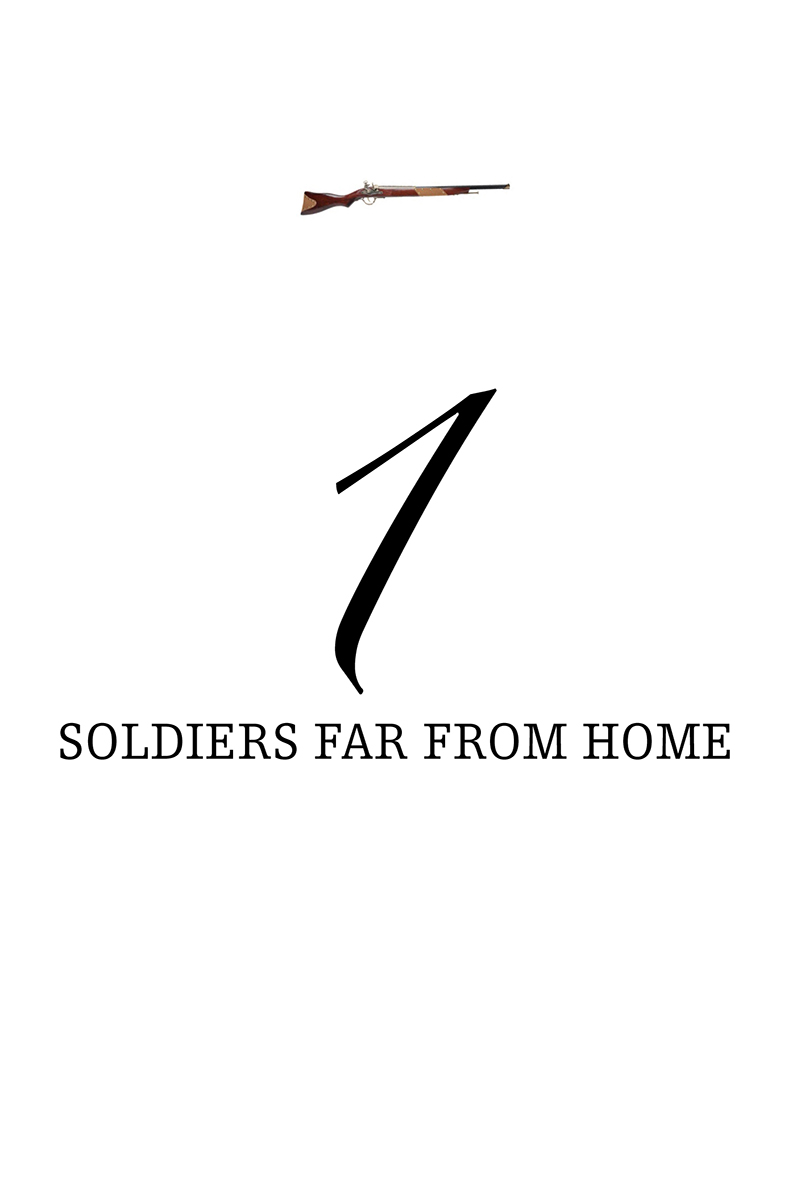
A mixture of sleet and snow hissed ominously out of Canadas polar north. In the lanes and fields outside the city of Quebec, the darkness was total. It was almost 2 a.m. on December 31, 1775. Around a table in a slope-roofed, stone house in the suburb of Saint Roch sat a group of grim-faced Americans. Their leader was Richard Montgomery, a tall, elegant Irishman of thirty-seven, who, fifteen years before, had helped to conquer Canada for England. Now Montgomery was a brigadier general in the Army of the United Colonies of North America and already the conqueror of two-thirds of Canada for the Continental Congress. Himself an aristocrat, the son of a baronet and a member of Parliament, he had become converted to the American cause by two of Parliaments finest orators, who were also his personal friends: Edmund Burke and Charles James Fox. But never did they dream, when they discussed the folly of the English government in general and George III in particular that this current of emotion and opinion could carry their magnetic young friend to this climactic moment in the dawn of such a climactic year.
In the nine months of semi-war that had begun at Lexington, Massachusetts, on April 19, 1775, British power had been driven off the North American continent except for a few square miles in and around the town of Boston, some scattered, feeble outposts in Florida, and the jumble of narrow streets and battered buildings and crumbling walls a short walk away from Montgomery and his circle of listeners - the fortress city of Quebec. With his unique combination of personal charm and military magnetism, Montgomery went over once more a plan that was certain to spell death for many of these listening men. Armed with nothing but muskets, hatchets, and pikes, they were going to attack a walled and fortified city, garrisoned by an army twice their size, backed by 200 cannon. As a professional soldier, Montgomery knew what he was asking these men to do. He also knew that he was going to ask them to do it long before he revealed the desperate gamble to them. Well over a month ago, he had written to his wealthy brother-in-law, Robert R. Livingston of New York, mournfully admitting that it would come to storming the place... at last. To his immediate commander, Major General Philip Schuyler, waiting anxiously at Albany for good news, he wrote in the same elegiac way about his decision. He was very sorry to be reduced to this mode of attack because he knew the melancholy consequences.
Other thoughts which Montgomery revealed to his brother-in-law and to his fellow aristocrat, Schuyler, he also concealed from his troops. One was his low opinion of them. He told his brother-in-law that the New Englanders were the worst stuff imaginable for soldiers. He could find among them no zealous attachment to the Cause. As for the New Yorkers, they were the sweepings of the York streets. Their morals were infamous and they had no more spirit than the New Englanders. Never again, Montgomery told his brother-in-law, would he hazard my reputation at the head of such ragamuffins.... Would I were at my plow again.
Why was he now hazarding not only his reputation, but his life? It was not for American independence. In his last letter to Robert Livingston, Montgomery made it clear that he shuddered at the melancholy necessity of separating from England. Instead, he was convinced that an American conquest of Canada would force the British Parliament to reverse their policy toward America. Behind his mask of cool, seemingly unillusioned courage, Montgomery was a captive of one of the major illusions of 1776.
The men who sat around the table with Montgomery listening to his plan of attack were also aware of the harrowing gamble they were about to take. One of Montgomerys aides, Captain Jacob Cheesman of New York, had dressed himself with special care and put five gold pieces in his pocket, enough, he hoped, to bury me with decency. Another aide, diminutive nineteen-year-old Aaron Burr of New Jersey, was equally convinced that the assault was virtual suicide, but he was a gambler by nature, with faith in his own lucky star. A third aide, twenty-one-year-old Captain John McPherson of Philadelphia, summed up the prevailing mood in a letter to his wealthy father. He told him that the letter was probably the last this hand will ever write you. He added, I experience no reluctance in this Cause, to venture a life which I consider is only right to be used when my country demands it.
If we pause to think about those words, they become rather strange. What country was demanding John McPhersons life? His native colony, Pennsylvania? There was nothing to gain and a great deal to lose in a Pennsylvanian attempt to conquer Canada. McPherson was obviously talking about America, the country that was at best a shadowy entity in the minds of the two and a half million white inhabitants of North America. At this point in time, it was little more than a word. It had no flag, no constitution, no laws, no legal existence. If there was a voice demanding McPhersons life, it emanated from a fluctuating group of some fifty to sixty men who met each day at the Pennsylvania State House in Philadelphia to pass resolutions, exhortations, and decrees in the name of the Continental Congress.
This extralegal body had sent Richard Montgomery, John McPherson, and their fellow Americans into Canada in pursuit of another illusion - the notion that the Catholic French-Canadians were ready and willing to revolt against their British conquerors and join the Protestant Americans in a united front that would make Congress truly continental. Alas, most French-Canadians had no interest whatsoever in joining the Bostonnais, as they called the Americans, unless it became very, very clear that they were the winning side.
Congress illusion about the French-Canadians was piled on top of an even more fatuous illusion - the idea that British power, once swept off the continent of North America, would never be able to gain a foothold on it again. That Congress could take seriously such a notion about a government with the worlds most powerful navy and an army that had perfected amphibious operations in previous wars was melancholy evidence of their military ignorance - an ignorance they were to demonstrate repeatedly in the next twelve months.
This does not mean that they were fools or knaves, worthy of nothing but contempt. On the contrary, as the year 1776 began, men on both sides of the Atlantic were in the grip of illusions that were hurtling England and America down a collision course to a military and political convulsion that would shake the civilized world. It is a convulsion about which contemporary Americans know amazingly little and contemporary Britons know even less. As for the rest of the world, their knowledge can be filed under Infinitesimal.
Subtracting everything but sheer size, the dominant figure at Montgomerys table was Daniel Morgan, the huge Virginia rifleman. He sat glowering, impatient as always with words and plans, his big fists clenched on the tabletop like primitive symbols. Morgan seemed born to make war. His face and body bore the scars of numerous encounters with violence. In 1758, he had been hit by an Indian bullet which smashed all the teeth on the left side of his mouth and exited through the back of his neck. Earlier, he had punched an English officer who had slapped him with the flat of his sword. For this he acquired 500 lashes and an undying grudge against England.
But not even the massive Morgan or the suave Montgomery could overshadow the man who sat at the opposite end of the table. Blue-gray bulging eyes shining with tense ardor, the heavy lower lip thrust out belligerently, Benedict Arnold hunched his broad, powerful shoulders and absorbed once more each minute detail of Montgomerys plan of attack. Without Arnolds leadership, this moment would never have come. True, with only 1,200 men and a tiny fleet, Montgomery had strung together a series of amazing victories since he had advanced into Canada in late August on orders from the Continental Congress. He had captured two British regiments, the fort they were defending, and finally Montreal. But most of his troops had turned around and gone home, ignoring the generals pleas that until Quebec was taken, Canada would never join the Revolution.

